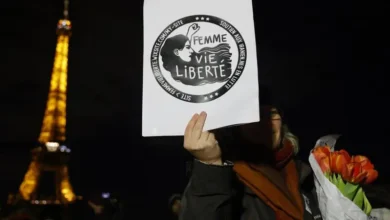Girls defy ban, wear Abaya on first day of school in France

The controversy surrounding the ban on abaya, a traditional Muslim dress, in French schools has ignited a heated debate over secularism, civil liberties, and the balance between religious expression and state regulations.
Nearly 300 girls defied the ban by wearing abayas to school, with 67 of them steadfastly refusing to change their attire and consequently being sent home.
The government’s decision to prohibit abayas in schools was framed as upholding the principle of secularism in education, akin to the previous bans on Muslim headscarves on the grounds of preventing religious displays.
The move found support among the political right, who viewed it as a necessary measure to maintain the separation of religion and education, but garnered criticism from the hard-left, who saw it as an encroachment on civil liberties.
Education Minister Gabriel Attal emphasized the importance of secularism and handed out letters to the girls sent home, asserting that “secularism is not a constraint, it is a liberty.”
However, he also hinted at the possibility of future dialogue if the girls chose to wear abayas again.
French President Emmanuel Macron defended the ban, highlighting the need to address challenges posed by individuals who “hijack a religion” and undermine the principles of the republic and secularism.
In response to the ban, an association representing Muslims filed a motion with France’s highest court for complaints against state authorities.
The motion seeks an injunction against the ban on abayas and their male equivalent, the qamis.
This legal challenge underscores the complex interplay between religious expression, state regulations, and individual rights in France.










